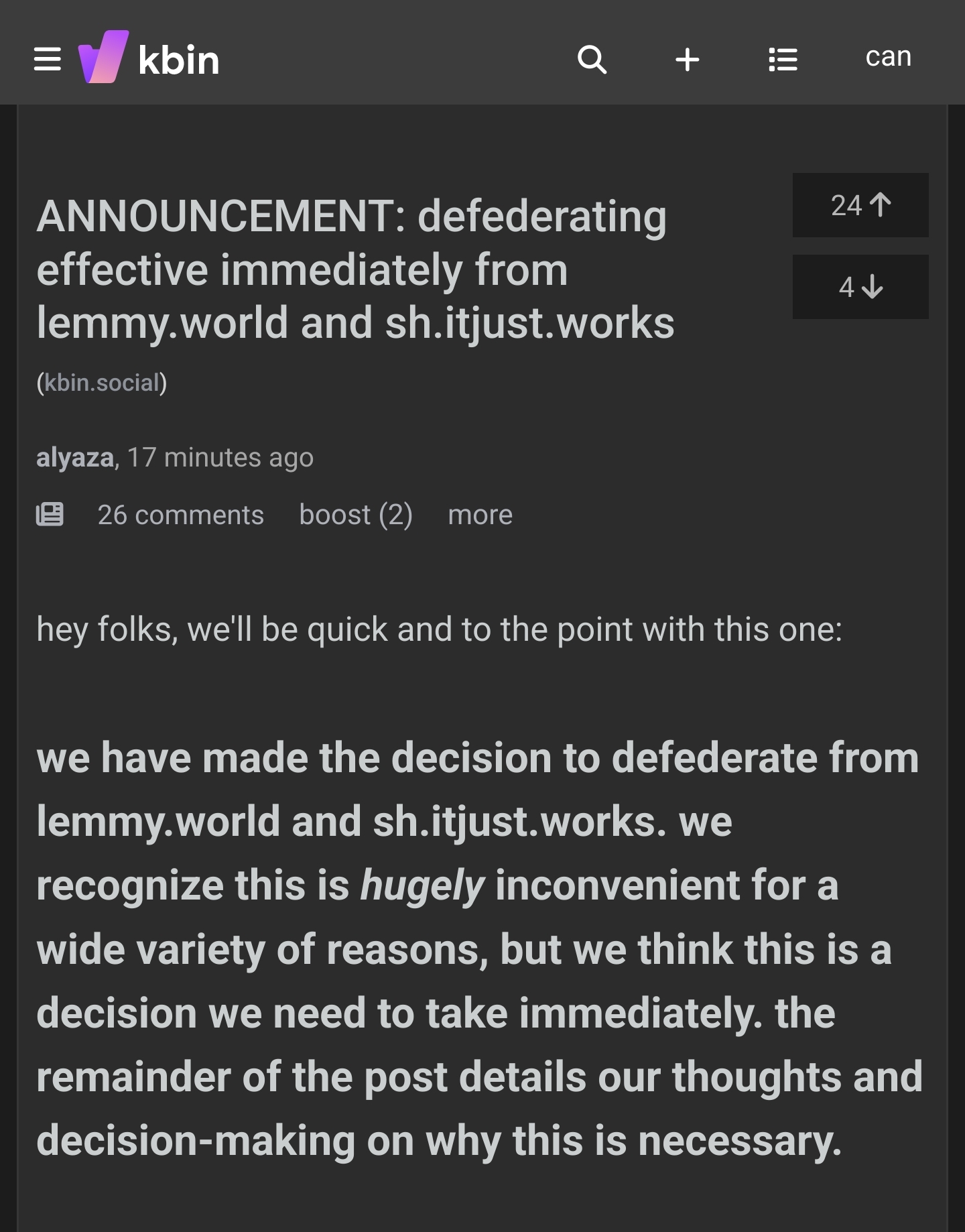this post was submitted on 15 Jun 2023
345 points (99.1% liked)
sh.itjust.works Main Community
7730 readers
1 users here now
Home of the sh.itjust.works instance.
founded 1 year ago
MODERATORS
you are viewing a single comment's thread
view the rest of the comments
view the rest of the comments


Well, look at the bright side: the evolution of descentralized federation now depends on the moderation topic. I wouldn't be surprised if someone takes federation to the next level and creates a moderation tool which would work out of the box for the fediverse, at the technology level (e.g. ActivityPub).
If and when this happens, federation has a bigger chance in replacing current centralized social networks.
I've been kicking around an idea in my head of making a Lemmy fork that has Tildes' ideas about modding baked in. (I would fork Kbin but I don't know PHP.)
Combine that with things like AutoModerator (the person behind Tildes is the one who built AutoMod on Reddit) and it seems like a reasonable way for a platform to promote good stuff and cut down on bad.
You'll have to deal with per-community "power users" with a lot of power, but the alternative is unelected mods who can be just as bad.
I don't know if I'm ever going to get around to making that fork. But I think taking Tildes' approach to mods is novel and fresh, and I quite like it.
That's also how it works on StackOverflow and HN. The more karma you have the more access to moderation tools.